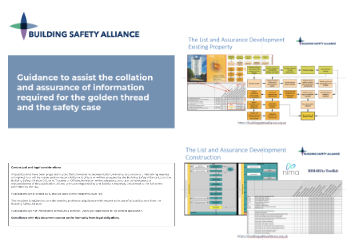Scoping study for environmental impact assessment
A scoping study (sometimes called a scoping opinion) is the process of determining the content of an environmental impact assessment where an environmental impact assessment is required as part of a planning application.
Broadly, environmental impact assessments are required for development described in schedule 1 and schedule 2 of The Town and Country Planning (Environmental Impact Assessment) (England and Wales) Regulations. This includes projects such as:
- Power stations, refineries, certain industrial processes, certain transport projects, dams pipelines and airports.
- Major projects (above certain thresholds) described in the schedules of the regulations.
- Developments in sensitive or vulnerable locations (thresholds do not apply in sensitive locations such as national parks or national nature reserves where every project must be screened for environmental impact assessment).
- Unusually complex projects that may have adverse environmental effects.
See Environmental Impact Assessment for more information.
The local planning authority must provide a scoping opinion if requested by a developer. The scoping opinion should identify the content and extent of the information to be included in an environmental impact assessment. Scoping is not mandatory, but it is considered to be an important part of preparing an environmental impact assessment as it ensures that the assessment focuses on the key issues.
A request for a scoping study should include:
- A plan identifying the land.
- A description of the development.
- A description of the possible effects of the development on the environment.
- Other relevant information.
The local planning authority should adopt a scoping opinion within five weeks of receiving the request, or within five weeks of adopting a screening opinion if one was requested at the same time. If the local planning authority fails to adopt a scoping opinion, or if the applicant disagrees with the opinion, they may appeal to the Secretary of State who will then make a scoping direction.
NB In April 2015, the Town and Country Planning (Environmental Impact Assessments)(Amendment) Regulations 2015 came into effect, raising the threshold above which a screening decision is required to determine whether an environmental statement is necessary, as set out in the Town and Country Planning (Environmental Impact Assessment) Regulations 2011. Controversially, this raised the threshold for industrial estates, residential developments and other urban developments from 0.5 hectares to five hectares (or 150 units for residential developments).
[edit] Related articles on Designing Buildings Wiki
Featured articles and news
International Electrician Day, 10 June 2025
Celebrating the role of electrical engineers from André-Marie Amperè, today and for the future.
New guide for clients launched at Houses of Parliament
'There has never been a more important time for clients to step up and ...ask the right questions'
The impact of recycled slate tiles
Innovation across the decades.
EPC changes for existing buildings
Changes and their context as the new RdSAP methodology comes into use from 15 June.
Skills England publishes Sector skills needs assessments
Priority areas relating to the built environment highlighted and described in brief.
BSRIA HVAC Market Watch - May 2025 Edition
Heat Pump Market Outlook: Policy, Performance & Refrigerant Trends for 2025–2028.
Committing to EDI in construction with CIOB
Built Environment professional bodies deepen commitment to EDI with two new signatories: CIAT and CICES.
Government Grenfell progress report at a glance
Line by line recomendation overview, with links to more details.
An engaging and lively review of his professional life.
Sustainable heating for listed buildings
A problem that needs to be approached intelligently.
50th Golden anniversary ECA Edmundson apprentice award
Deadline for entries has been extended to Friday 27 June, so don't miss out!
CIAT at the London Festival of Architecture
Designing for Everyone: Breaking Barriers in Inclusive Architecture.
Mixed reactions to apprenticeship and skills reform 2025
A 'welcome shift' for some and a 'backwards step' for others.
Licensing construction in the UK
As the latest report and proposal to licence builders reaches Parliament.
Building Safety Alliance golden thread guidance
Extensive excel checklist of information with guidance document freely accessible.
Fair Payment Code and other payment initiatives
For fair and late payments, need to work together to add value.
Pre-planning delivery programmes and delay penalties
Proposed for housebuilders in government reform: Speeding Up Build Out.
High street health: converting a building for healthcare uses
The benefits of health centres acting as new anchor sites in the high street.
























